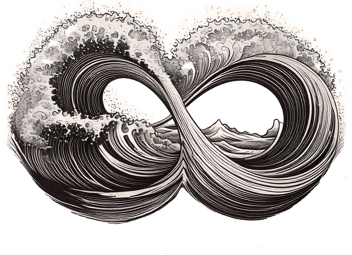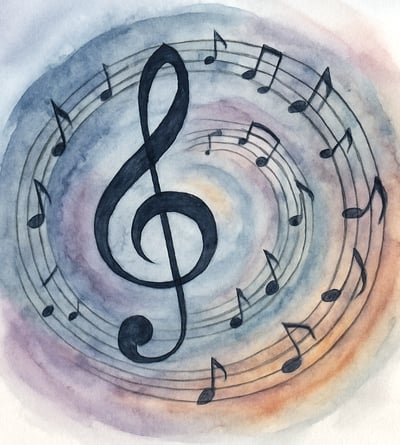Love one another
To All at USC Transplant Clinic and Keck Hospital
THANK YOU. You are the unsung heroes who turned my darkest days into a canvas of hope, healing, and second chances. Each of you, from the surgeons to the nurses, coordinators, and the staff who greeted me with a smile.
I’ll never forget the moments you held space for me—through the fear, the waiting, and the triumph. I wasn’t always easy to care for. There were times I was difficult, breaking down, screaming, and crying, lost in my own storm. Your patience through my frustration and tears was a gift I can’t repay. You stayed steady, never making me feel like a burden, even when I tested you. That kind of grace carried me through.
Even in my self-absorption, I saw your hard work—hours and hours of your time and energy poured into my care. I noticed the doctors teaching, guiding residents with such incredible passion, and those eager learners soaking up every moment with fire in their eyes. Your dedication, the way you gave everything to this calling, was a light I couldn’t miss, even on my hardest days. It’s a testament to your heart and efforts that I’m here, whole again.
Your expertise gave me a new rhythm, but your compassion gave me wings. I’m out here now, creating again, dreaming big, and even making music to honor you all (link below). It’s because of your hands, hearts, and hustle that I’m not just surviving but thriving—chasing my dreams with more life to live.
You’re not just a team; you’re my LifeSavers. I carry your care in every step, every song, every sunrise I get to see because of you. Thank you for being my light and my reason to keep shining.
With endless gratitude and a whole lot of love,
Jenny Malott
Listen To Music
Songs of Healing—a soulful playlist dedicated to the USC Transplant team. Grateful songs of miracles, love, and rebirth to uplift and inspire. Click on the titles to read the lyrics written to you.


Full Circle:
A Journey from Voice to Vision
A story of connection, creativity, and the unexpected ways our voices return to us


The Seeds of Tomorrow (1997)
In 1997, I was managing a grocery store in Sausalito, California, when a regular customer approached me with an unusual request. He was working on what I believe was IBM's ViaVoice project, training a program to recognize voices, but the system was struggling with female voices—a common problem at the time since so much of the prior training had been done with male voices. He needed my help—could I speak a list of words into a microphone?
At first, I thought I was helping with extraordinary technology, something that felt important and cutting-edge. But when I shared the experience afterward, no one seemed to care. It was just another moment that passed, unremarkable to everyone but me. I had no idea I was contributing to the future of artificial intelligence, or that decades later, whispers of that same voice would sing back to me when I needed it most.
The Creative Years (1997-2020)
Having studied Graphic Design in the Applied Art & Design program at Cal Poly San Luis Obispo, it was natural for me to build a career in this field. For nearly three decades, I freelanced, primarily helping small businesses discover and express their visual identity. There was something deeply satisfying about the branding process—getting inside my clients' heads, understanding their vision, and translating their voice and style into something tangible and beautiful.
As someone with dyslexia and neurodivergent traits that I've learned to mask well (so well that people often didn't believe me when I tried to explain), I inhabited that complex space of being different in a neurotypical world. The writing aspects of my work were challenging, but I learned to problem-solve in creative, unique ways that often surprised my clients. My different way of thinking became an asset, allowing me to see solutions others might miss.
But throughout those decades, there was something missing—something I had known from age 16 through the late 1990s when I was a musician and songwriter. In those years of performing my songs in front of audiences, I had discovered something extraordinary: music was the only medium where I truly felt heard. When I sang, all the barriers that made others misunderstand me disappeared. My voice could carry my truth in ways that spoken words never could. Then life pulled me away from music, and with it, that precious feeling of being fully understood. Little did I know that my voice, once captured to help train technology to recognize others, would eventually inspire me to help fine-tune new ways for the most misunderstood voices to finally be heard.
The Shattering and the Gift (2020-2024)
When illness struck in 2020 and COVID upended the world, my business crumbled. The isolation was devastating—not just losing my livelihood, but losing my identity as a creator. In my pain and exhaustion, I made a vow: I would never return to working on computers again. When both my beloved iMac and Canon camera broke right before I went to the hospital, it felt like the universe confirming my decision to walk away.
Easter weekend 2024 brought the liver transplant that saved my life. During recovery, I threw myself into crocheting—it was gentle, meditative, something my healing body could handle. But my dear friend watched my pursuit of yarn and hooks with growing concern. Finally, she refused to let me surrender my creative spirit entirely. She bought me a new MacBook and spoke words that would prove prophetic: "If you stop creating, you will die inside."
I reluctantly accepted her gift, but initially used it only to find inspiration for more crochet projects—and oh, how I crocheted! So much that I eventually burned out on yarn and hooks. Only then, with my friend's computer sitting there waiting, did curiosity finally overcome my resistance to technology.
The Transformation (2024-2025)
With my crocheting phase exhausted and my friend's computer waiting patiently, I decided to investigate what AI was all about. That's when I stumbled upon SUNO.
What began as exploration became a profound homecoming. I had been a musician and songwriter from age 16 through the late 1990s, but life had gradually pulled me away from music for over two decades. Now, through SUNO, I was returning to a love I thought I'd lost forever. I created a 14-song playlist dedicated to the USC transplant clinic—a musical journey through the raw landscape of my experience, but also a reunion with the songwriter I'd always been. Songs emerged about the agonizing shame of receiving a donor's organ, knowing that life was lost so mine could continue, yet acknowledging it with profound gratitude. I sang of the late-night dedication of nurses and doctors, the cleaning crew who greeted me with smiles that lifted my spirits daily, the awe-inspiring marriage of human skill, grace, and technology that saved me.
And then came the moment that changed everything: hearing my own voice, transformed by AI, singing my deepest truths back to me. After decades of silence, I was hearing myself again—not just the sound, but the feeling of being truly heard that I had lost when I stopped performing. In my own silence, I marveled, and a joy inexpressible was birthed. Those whispers from 1997 had returned, carrying my story and giving me back that precious sense of being understood that only music had ever provided.
The Vision Forward: Music as Liberation
Through my own journey of being misunderstood—labeled as having low intelligence, placed in special classes, carrying shame that carved painful marks on my subconscious—I understand intimately what it means to have a gifted mind trapped behind communication barriers. But I also know the transformative power of finding that one medium where your true self can finally be expressed and heard. For me, that was music—the only place I ever felt truly understood.
When I learned about the extraordinary non-speaking children featured in "The Telepathy Tapes," their stories brought me to tears. These incredibly gifted children, unable to control their bodies, are severely marginalized despite their profound abilities and their connection to realms like "The Hill." I see in them the same gifted minds I recognize in myself, trapped behind barriers that the world doesn't understand.
The spelling technique that has allowed these neurodivergent children to finally communicate their thoughts has been revelatory. But I envision something even more expansive, something I know from lived experience: What if these children could use AI music tools to discover what I discovered decades ago—that music can be the medium where they are finally, truly heard? Their unique neurological wiring, their different ways of processing reality, could flow into musical creations unlike anything the world has ever heard.
Music doesn't require linear communication—it can express multiple layers of emotion, sensation, and transcendent experience simultaneously. Where words sometimes fail, music can hold contradictions, complex emotions, and glimpses of consciousness that we've never had access to before. Their compositions could become bridges between their world and ours, helping us understand what it means to experience reality through their extraordinary minds.
The Seed Planted
Now I have a seed planted in my heart, carried forward by a second chance at life: to help transform sorrow into beauty for my neurodivergent brothers and sisters, if fate will allow. My voice, which once helped train the technology that would eventually sing back to me, might now help facilitate a new kind of breakthrough—one where the most misunderstood among us finally have a medium through which their inner worlds can be heard and celebrated.
In this full circle, I see not just personal healing, but the possibility of revolutionary expression for those who have been waiting their whole lives to be truly heard.